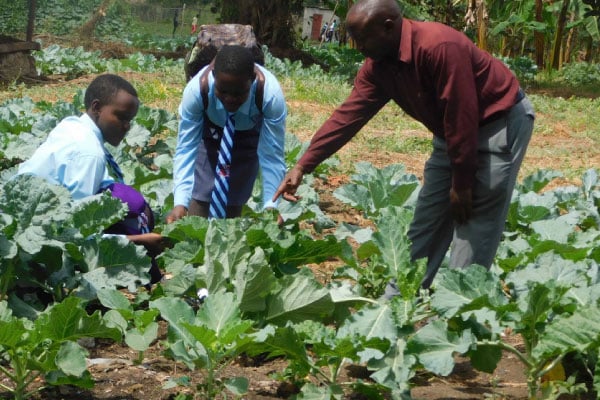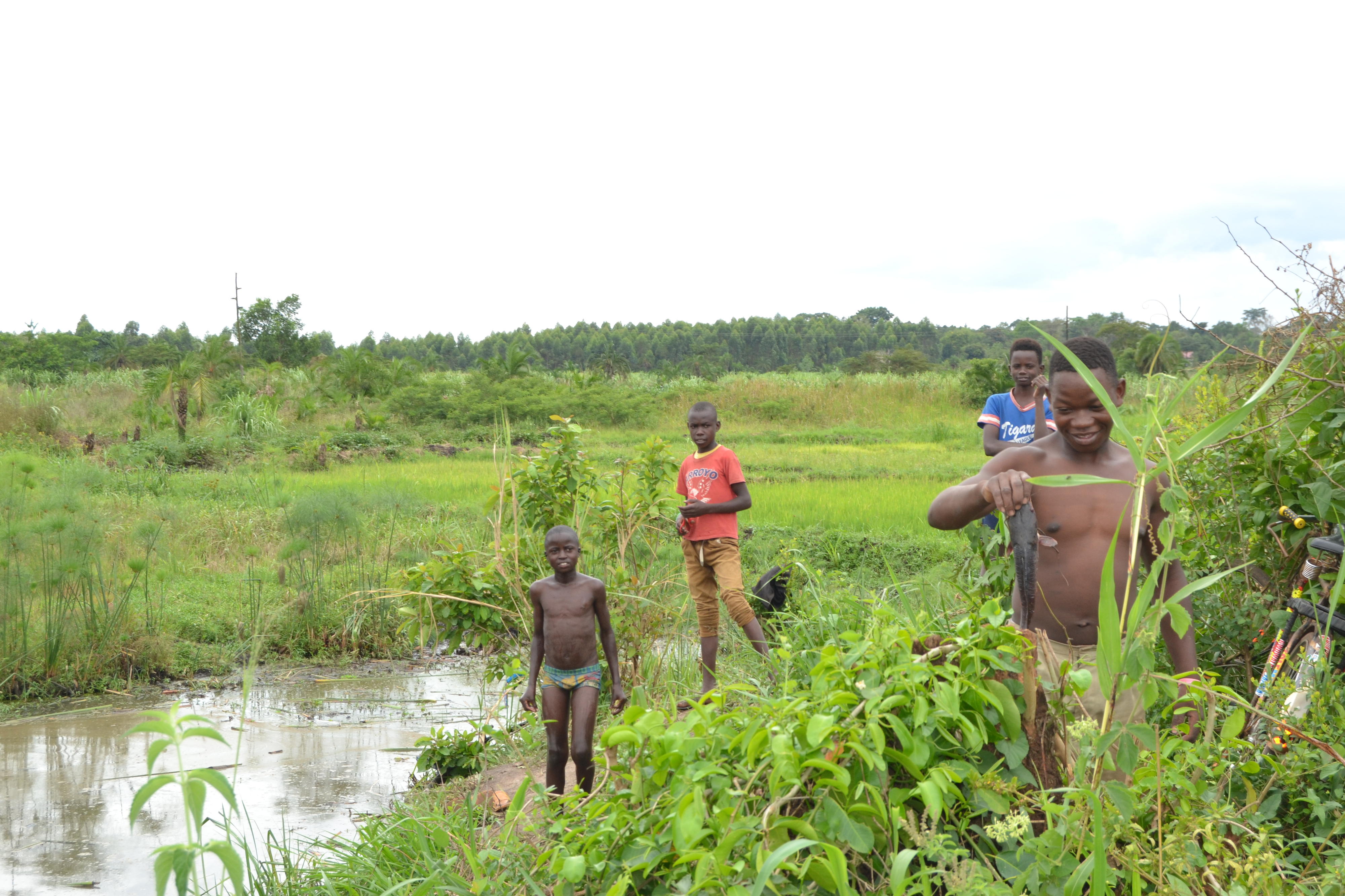Where all schools go for agricultural exposure

Edward Mugabi, who cordinates trips for students in Ssembabule District to attend Mbuye Agricultural College demonstration day supervises students’ work on their vegetable plots. Photo/Michael J Ssali
What you need to know:
- All students are allocated small plots of land measuring perhaps five feet by 10 feet or a little larger where they each grow their own vegetables.
- Their learning progress is continuously assessed by the college instructors in skills such as sustaining soil fertility, pruning, irrigation, weeding, and pest control among other practices.
One of the biggest challenges in our education system is lack of sufficient equipment to give practical agricultural skills to school children. Yet more than 70 percent of our population in Uganda depends on agriculture for both food and income.
Our farmers keep livestock and grow crops without sufficient skills and equipment needed to take good care of animals and crops to achieve maximum production and profits.
Since most of our schools are not in a position to teach practical agricultural skills any knowledge about farming is merely passed on from generation to generation by the young observing and imitating their parents and other farmers in their neighbourhoods.
When they get out of school they are advised to take up farming as a form of employment and to take advantage of programmes such as Parish Development Model (PDM) to access credit. But what real training do the majority of the youths being told to become farmers have in modern agriculture?
System lacks
Gerald Nsambu, Masaka District inspector of schools, agrees that our education system is not paying enough attention to providing farming skills, much as we are basically an agricultural country.
“Quite a lot of schools don’t even have space for playgrounds and how do you expect them to get any space for land where to teach farming?” he asks.
Why teach agriculture
Aware of their lack of facilities to carry out successful teaching of agriculture, most schools nowadays in central Uganda and Western Uganda take their agriculture students to spend a day at St Mathias Mbuye agricultural college in Rakai District to get exposure to how practical, hands-on farming skills are done and taught.
On June 21 2024, Seeds of Gold paid a visit to the college where thousands of secondary school students were gathered to see for themselves how what they are taught theoretically is done practically.
Most of them, for example, had been taught about irrigation as a crucial practice in climate smart agriculture but they had never discovered that it is possible to harvest enough rainwater to sustain successful agriculture on a large mixed farm throughout prolonged drought periods. Most of them were not familiar with piped drip irrigation, water sprinklers, and rain guns.
Model farming school
At St Mathias Mbuye agricultural college the students saw four large rainwater tanks with a total storage capacity of over one million litres.
The institution of close to 1,000 students (both in secondary school and the agricultural institution) is not situated near any reliable clean water source such as a well, a river, or valley dam but it has stored enough rainwater required for large scale livestock keeping and plants as well as for general cleaning and food preparation purposes.
The rainwater is harvested from the roofs of the college buildings and led through pipes into the massive tanks from where it is pumped wherever it is required.
In their different schools the students had never been inside a greenhouse but at St Mathias Mbuye Agricultural College they were able to get inside one and to see potted green pepper growing with vigour.
Norman Tumusiime, a finalist student at the college, took the visiting secondary school learners through the functions of greenhouses which are structures designed to regulate the temperature and humidity of the environment inside them for successful growth of crops regardless of whether it’s a dry season or wet season.
They saw several demonstrations of different urban farming technologies and soil conservation. They were exposed to methods of doing commercial farming on small plots of land.
Just after passing through the college gate the visitor sees small plots of vegetables located beside the way as good examples for all passersby to learn about how agricultural land can best be cropped and protected.
All students are allocated small plots of land measuring perhaps five feet by 10 feet or a little larger where they each grow their own vegetables. Their learning progress is continuously assessed by the college instructors in skills such as sustaining soil fertility, pruning, irrigation, weeding, and pest control among other practices.
The school teaches animal husbandry, poultry, plant growth management, manure and fertiliser treatments, soil conservation, crop nursery management, crop storage, book keeping, pests and diseases control methods. They also learn about treatment of livestock diseases.
Joseph Lubowa, Vice Director of Mbuye Agricultural College, shared with Seeds of Gold the history of the institution which according to him is totally private and owned by Masaka Diocese. He said it was started by Rev Father Mathias Lusembo in 1986, soon after his return from studies in Italy.
It was the priest’s response to the drastic effects of the AIDS scourge in Rakai District back then when there were child-headed families nearly all over Rakai District. Father Lusembo was later to be appointed Rector of Katigondo Major Seminary and today he lives in the US but he has always been there to offer guidance in the running and development of the college.
Student acquire skills
When the students finish their Ordinary Level course they have the skills needed for self-employment, as farmers, tailors, builders, or carpenters. However in 1996 the institute opened up a two-year-course leading to the award of a certificate in agriculture. In 2006 the institute began the Diploma Section which is also affiliated to Uganda Martyrs, Nkozi University. Today the institute which sits on 103 acres is the Mecca of agricultural training where students from different parts of Uganda go to get practical exposure.




